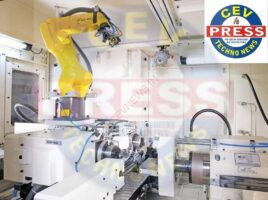PRECISION GRINDING: TECHNIQUES AND APPLICATIONS IN MODERN MANUFACTURING
Precision grinding plays a crucial role in modern manufacturing processes in India, offering a myriad of techniques and applications that contribute to the production of high-quality components across various industries. From automotive to aerospace, precision grinding ensures the precise shaping and finishing of materials, meeting stringent requirements for accuracy and surface quality. Here, we delve into the key aspects of precision grinding and its significance in the Indian manufacturing landscape.
Understanding Precision Grinding:
Precision grinding refers to the process of removing material from a workpiece to achieve desired dimensions and surface finish with high accuracy. Unlike conventional machining methods, precision grinding involves the use of specialized machinery and abrasives to attain tight tolerances and smooth surfaces. Various techniques are employed in precision grinding, including surface grinding, cylindrical grinding, and centerless grinding, each suited for specific applications and workpiece geometries.
Applications Across Industries:
Precision grinding finds extensive applications across diverse industries in India. In the automotive sector, it is indispensable for manufacturing engine components, transmission parts, and brake systems with precise dimensions and surface quality, ensuring optimal performance and safety. Similarly, in the aerospace industry, precision-ground components such as turbine blades and landing gear play a critical role in maintaining aircraft efficiency and reliability. Moreover, precision grinding is vital in the production of medical devices, tooling, dies, and molds, where dimensional accuracy and surface finish are paramount.
Advanced Techniques and Technologies:
Advancements in precision grinding techniques and technologies have revolutionized modern manufacturing in India. Computer Numerical Control (CNC) grinding machines offer unparalleled precision and repeatability, allowing for complex geometries and tight tolerances to be achieved with ease. Additionally, the integration of automation and robotics enhances productivity and process reliability, reducing cycle times and minimizing human error. Furthermore, developments in abrasive materials and coolant systems contribute to improved cutting performance and thermal management, enhancing overall efficiency and surface integrity.
Challenges and Future Trends:
Despite its numerous advantages, precision grinding in India faces challenges such as skill shortages and the need for continual investment in advanced machinery and training. However, the industry is witnessing promising trends, including the adoption of Industry 4.0 technologies for real-time monitoring and predictive maintenance, as well as the emergence of hybrid machining processes combining grinding with additive manufacturing. Moreover, the growing demand for lightweight materials and miniaturized components is driving innovation in precision grinding, leading to the development of novel techniques and applications.
Precision grinding remains a cornerstone of modern manufacturing in India, enabling the production of high-quality components across various industries. With its precise techniques, advanced technologies, and diverse applications, precision grinding continues to evolve, addressing the ever-changing demands of the manufacturing landscape. By embracing innovation and investing in skills development, India can further solidify its position as a global hub for precision engineering and manufacturing excellence.


